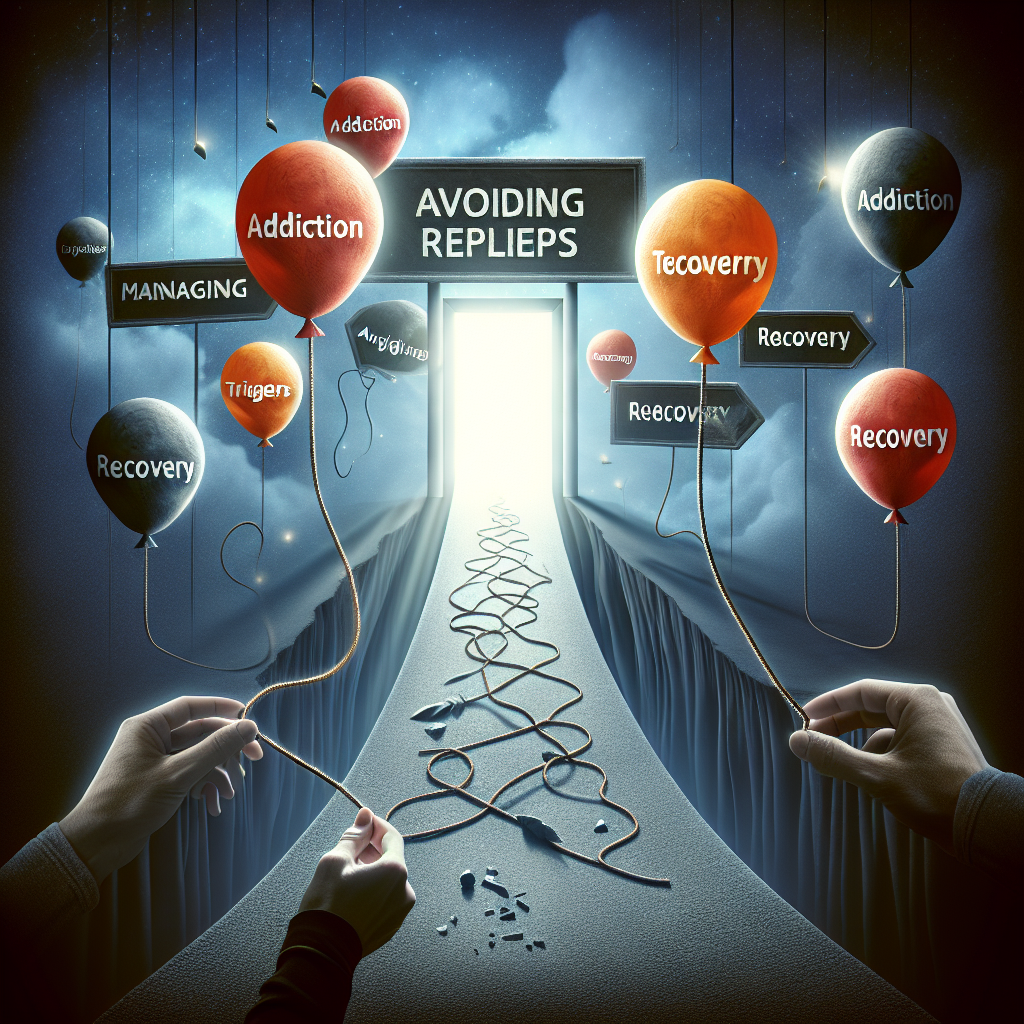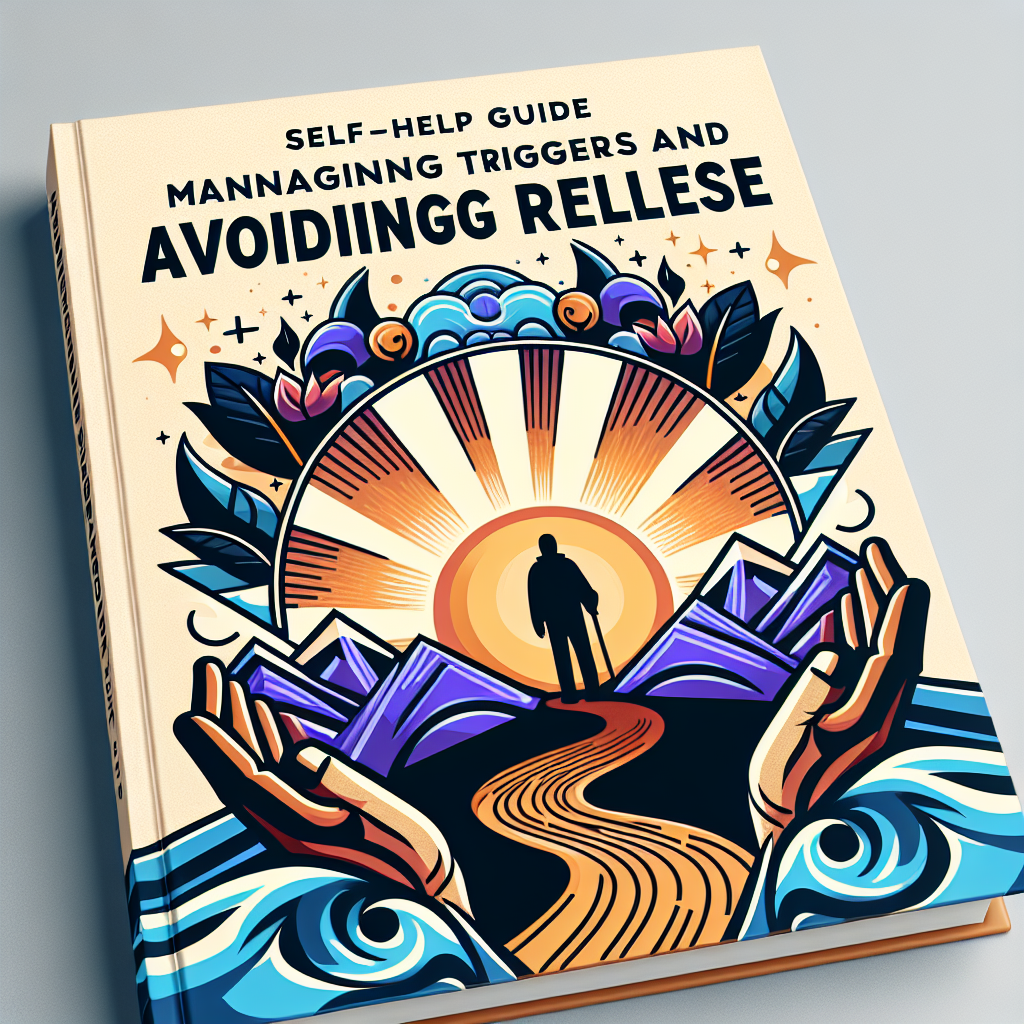-
Table of Contents

“Empower Your Journey: Master Triggers, Prevent Relapse, Embrace Recovery.”
Introduction
“Managing Triggers and Avoiding Relapse: Essential Tips for Addiction Recovery” is a comprehensive guide designed to support individuals on their journey to overcoming addiction. This resource delves into the critical aspects of identifying and managing triggers—those emotional, environmental, or situational cues that can lead to cravings and potential relapse. By understanding the nature of these triggers and implementing effective coping strategies, individuals can strengthen their resilience and maintain their commitment to sobriety. The guide also offers practical advice on building a robust support network, developing healthy habits, and utilizing therapeutic techniques to navigate the complexities of addiction recovery. Whether you are in the early stages of recovery or seeking to reinforce your long-term sobriety, this guide provides essential tips and insights to help you stay on track and achieve lasting wellness.
Identifying and Managing Triggers: Key Strategies for Sustained Addiction Recovery
In the journey of addiction recovery, identifying and managing triggers is a crucial step towards sustained sobriety. Triggers, which can be people, places, emotions, or situations that provoke cravings, often pose significant challenges for individuals striving to maintain their recovery. However, with the right strategies, it is possible to navigate these triggers effectively and avoid relapse.
To begin with, self-awareness is the cornerstone of managing triggers. Understanding what specifically triggers your cravings is essential. This requires introspection and, often, the guidance of a therapist or counselor. By keeping a journal, you can track your emotions and situations that lead to cravings, thereby identifying patterns. For instance, you might notice that stress at work or certain social settings are common triggers. Recognizing these patterns allows you to anticipate and prepare for them.
Once you have identified your triggers, the next step is to develop coping mechanisms. One effective strategy is to create a robust support system. Surrounding yourself with supportive friends, family, and recovery groups can provide the encouragement and accountability needed to stay on track. These individuals can offer a listening ear, practical advice, and a sense of community, which are invaluable during challenging times.
In addition to building a support network, it is important to develop healthy habits that can serve as alternatives to substance use. Engaging in regular physical activity, for example, can help reduce stress and improve your overall well-being. Exercise releases endorphins, which are natural mood lifters, and can be a powerful tool in managing cravings. Similarly, practicing mindfulness and meditation can help you stay grounded and focused, making it easier to navigate triggers without succumbing to them.
Moreover, setting clear boundaries is another key strategy in managing triggers. This might involve avoiding certain places or people that are associated with your past substance use. While it can be difficult to distance yourself from familiar environments or relationships, it is often necessary to protect your recovery. Communicating your boundaries to others and being firm in upholding them can prevent you from being exposed to high-risk situations.
Furthermore, having a relapse prevention plan in place is essential. This plan should outline specific steps to take if you encounter a trigger or experience a craving. For example, it might include calling a trusted friend, attending a support group meeting, or engaging in a distracting activity. Having a plan provides a sense of control and preparedness, reducing the likelihood of relapse.
It is also important to address underlying issues that may contribute to your addiction. Many individuals use substances as a way to cope with unresolved trauma, mental health issues, or emotional pain. Seeking professional help to address these root causes can significantly enhance your ability to manage triggers and maintain long-term recovery. Therapy, whether individual or group, can provide valuable insights and coping strategies tailored to your specific needs.
Lastly, maintaining a positive mindset is crucial in the recovery process. Celebrate your progress, no matter how small, and remind yourself of the reasons you chose to pursue sobriety. Visualizing a future free from addiction and focusing on your goals can provide motivation and strength to overcome triggers.
In conclusion, identifying and managing triggers is a multifaceted process that requires self-awareness, support, healthy habits, clear boundaries, a relapse prevention plan, addressing underlying issues, and a positive mindset. By implementing these strategies, you can navigate the challenges of addiction recovery and build a fulfilling, substance-free life. Remember, recovery is a journey, and with perseverance and the right tools, sustained sobriety is within reach.
Practical Tips to Avoid Relapse: Building a Strong Foundation in Addiction Recovery
In the journey of addiction recovery, managing triggers and avoiding relapse are crucial components that require continuous effort and dedication. Building a strong foundation in addiction recovery involves not only understanding the nature of addiction but also implementing practical strategies to maintain sobriety. One of the first steps in this process is identifying personal triggers. Triggers can be anything from specific people and places to certain emotions or situations that evoke the urge to use substances. By recognizing these triggers, individuals can develop strategies to avoid or cope with them effectively.
Establishing a robust support system is another essential aspect of avoiding relapse. Surrounding oneself with supportive friends, family, and recovery groups can provide the encouragement and accountability needed to stay on track. Engaging in regular meetings, whether through 12-step programs or other support groups, can offer a sense of community and shared experience that is invaluable in maintaining sobriety. Additionally, having a sponsor or mentor who has successfully navigated their own recovery journey can provide guidance and support during challenging times.
Creating a structured daily routine can also play a significant role in preventing relapse. A well-organized schedule helps to fill the day with productive activities, reducing idle time that might otherwise lead to cravings or negative thoughts. Incorporating healthy habits such as regular exercise, balanced nutrition, and adequate sleep can improve overall well-being and resilience. Exercise, in particular, has been shown to reduce stress and improve mood, which can be beneficial in managing the emotional aspects of recovery.
Mindfulness and stress management techniques are equally important in building a strong foundation for recovery. Practices such as meditation, yoga, and deep-breathing exercises can help individuals stay grounded and present, reducing the impact of stress and anxiety. Learning to manage stress effectively is crucial, as high-stress levels are a common trigger for relapse. By developing healthy coping mechanisms, individuals can better navigate the inevitable challenges that arise during recovery.
Setting realistic and achievable goals is another practical tip for avoiding relapse. Goals provide a sense of purpose and direction, helping individuals stay focused on their recovery journey. These goals can be related to personal growth, career aspirations, or relationships, and should be broken down into manageable steps. Celebrating small victories along the way can boost motivation and reinforce the commitment to sobriety.
It is also important to address any underlying mental health issues that may contribute to addiction. Co-occurring disorders such as depression, anxiety, or PTSD can complicate the recovery process if left untreated. Seeking professional help from therapists or counselors who specialize in addiction and mental health can provide the necessary tools and support to manage these conditions effectively.
Lastly, practicing self-compassion and forgiveness is vital in the recovery process. Addiction often comes with feelings of guilt and shame, which can hinder progress if not addressed. Embracing a compassionate attitude towards oneself allows for healing and growth, fostering a positive mindset that is conducive to long-term recovery.
In conclusion, managing triggers and avoiding relapse requires a multifaceted approach that includes identifying triggers, building a support system, creating a structured routine, practicing mindfulness, setting achievable goals, addressing mental health issues, and embracing self-compassion. By implementing these practical tips, individuals can build a strong foundation in addiction recovery, paving the way for a healthier, more fulfilling life.
Q&A
1. **Question:** What are some common triggers that individuals in addiction recovery should be aware of?
**Answer:** Common triggers include stress, exposure to environments or people associated with past substance use, emotional distress, and certain social situations or events.
2. **Question:** What are some strategies to avoid relapse in addiction recovery?
**Answer:** Strategies include developing a strong support network, engaging in regular therapy or counseling, practicing stress management techniques, avoiding high-risk situations, and creating a structured daily routine.
Conclusion
Managing triggers and avoiding relapse are critical components of addiction recovery. Essential tips include identifying personal triggers, developing healthy coping mechanisms, seeking support from therapy or support groups, maintaining a structured routine, and practicing self-care. By staying vigilant and proactive, individuals can strengthen their resilience and sustain long-term recovery.



